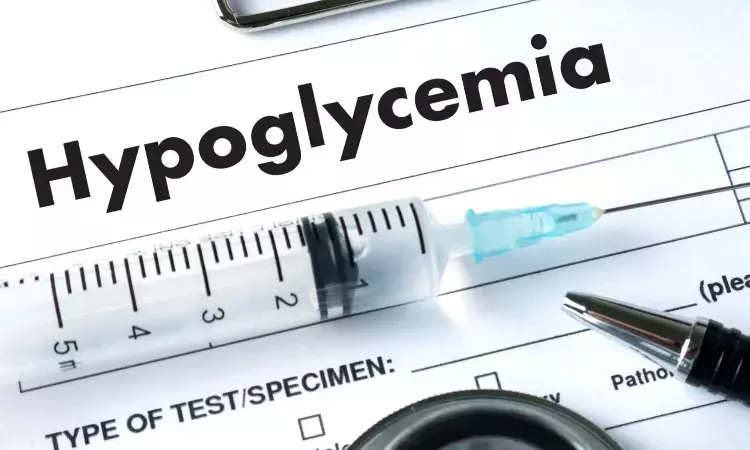- Home
- Medical news & Guidelines
- Anesthesiology
- Cardiology and CTVS
- Critical Care
- Dentistry
- Dermatology
- Diabetes and Endocrinology
- ENT
- Gastroenterology
- Medicine
- Nephrology
- Neurology
- Obstretics-Gynaecology
- Oncology
- Ophthalmology
- Orthopaedics
- Pediatrics-Neonatology
- Psychiatry
- Pulmonology
- Radiology
- Surgery
- Urology
- Laboratory Medicine
- Diet
- Nursing
- Paramedical
- Physiotherapy
- Health news
- Fact Check
- Bone Health Fact Check
- Brain Health Fact Check
- Cancer Related Fact Check
- Child Care Fact Check
- Dental and oral health fact check
- Diabetes and metabolic health fact check
- Diet and Nutrition Fact Check
- Eye and ENT Care Fact Check
- Fitness fact check
- Gut health fact check
- Heart health fact check
- Kidney health fact check
- Medical education fact check
- Men's health fact check
- Respiratory fact check
- Skin and hair care fact check
- Vaccine and Immunization fact check
- Women's health fact check
- AYUSH
- State News
- Andaman and Nicobar Islands
- Andhra Pradesh
- Arunachal Pradesh
- Assam
- Bihar
- Chandigarh
- Chattisgarh
- Dadra and Nagar Haveli
- Daman and Diu
- Delhi
- Goa
- Gujarat
- Haryana
- Himachal Pradesh
- Jammu & Kashmir
- Jharkhand
- Karnataka
- Kerala
- Ladakh
- Lakshadweep
- Madhya Pradesh
- Maharashtra
- Manipur
- Meghalaya
- Mizoram
- Nagaland
- Odisha
- Puducherry
- Punjab
- Rajasthan
- Sikkim
- Tamil Nadu
- Telangana
- Tripura
- Uttar Pradesh
- Uttrakhand
- West Bengal
- Medical Education
- Industry
New injectable may prevent and treat hypoglycemia, reveals research

People with diabetes take insulin to lower high blood sugar. However, if glucose levels plunge too low-from taking too much insulin or not eating enough sugar-people can experience hypoglycemia, which can lead to dizziness, cognitive impairment, seizures or comas. To prevent and treat this condition, researchers in ACS Central Science report encapsulating the hormone glucagon. In mouse trials, the nanocapsules activated when blood sugar levels dropped dangerously low and quickly restored glucose levels.
Glucagon is a hormone that signals the liver to release glucose into the bloodstream. It’s typically given by injection to counteract severe hypoglycemia in people who have diabetes. While an emergency glucagon injection can correct blood sugar levels in about 30 minutes, formulations can be unstable and insoluble in water. In some cases, the hormone quickly breaks down when mixed for injections and clumps together to form toxic fibrils. Additionally, many hypoglycemic episodes occur at night, when people with diabetes aren’t likely to test their blood sugar. To improve commercial glucagon stability and prevent hypoglycemia, Andrea Hevener and Heather Maynard looked to micelles: nanoscale, soap-like bubbles that can be customized to assemble or disassemble in different environments and are used for drug delivery. They developed a glucose-responsive micelle that encapsulates and protects glucagon in the bloodstream when sugar levels are normal but dissolves if levels drop dangerously low. To prevent hypoglycemia, the micelles could be injected ahead of time and circulate in the bloodstream until they are needed.
In lab experiments, the researchers observed that the micelles disassembled only in liquid environments that mimicked hypoglycemic conditions in both human and mice bodies: less than 60 milligrams of glucose per deciliter. Next, when mice experiencing insulin-induced hypoglycemia received an injection of the specialized micelles, they achieved normal blood sugar levels within 40 minutes. The team also determined that glucagon-packed micelles stayed intact in mice and didn’t release the hormone unless blood glucose levels fell below the clinical threshold for severe hypoglycemia. From additional toxicity and biosafety studies in mice, the researchers note that empty micelles didn’t trigger an immune response or induce organ damage.
While more studies are needed, the researchers say their proof-of-concept is a first step toward a new on-demand and effective method for preventing or mitigating extremely low blood sugar levels.
Reference:
Daniele VinciguerraRajalakshmi P SJane YangPanagiotis G. GeorgiouKatherine SnellThéo PesentiJeffrey CollinsMikayla TambolineShili XuR. Michael van DamKathryn M. M. MessinaAndrea L. Hevener Heather D. Maynard, A Glucose-Responsive Glucagon-Micelle for the Prevention of Hypoglycemia, ACS Central Science, DOI:10.1021/acscentsci.4c00937.
Dr Kamal Kant Kohli-MBBS, DTCD- a chest specialist with more than 30 years of practice and a flair for writing clinical articles, Dr Kamal Kant Kohli joined Medical Dialogues as a Chief Editor of Medical News. Besides writing articles, as an editor, he proofreads and verifies all the medical content published on Medical Dialogues including those coming from journals, studies,medical conferences,guidelines etc. Email: drkohli@medicaldialogues.in. Contact no. 011-43720751


